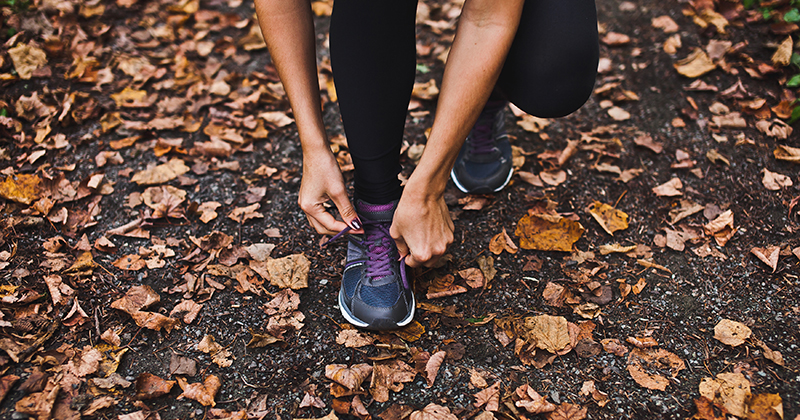The transition from summer to fall and winter can be hard – mentally and physically – and when life gets busy, we tend to put our exercise routine on the back burner. Instead of coming up with excuses that keep you from the gym, why not try setting realistic workout goals for the new season? Whether you’re looking to run a 5k, complete a triathlon or go to your first yoga class, here are a few ways to set healthy and realistic goals, and more importantly to stick with them.
First, keep in mind this goal is about you. Don’t compare your goal to others. Shifting your perspective of the definition of a healthy workout goal can make attaining it more feasible. The wonderful thing about personal fitness goal setting is that regardless of society’s health fads, you are making your own version of “healthy.” Don’t be afraid of your next steps, you might even surprise yourself during the process.
Try something new or build on a goal you’ve already started
Too often we get stuck in a workout routine that our bodies gets used to. It’s great to make working out a habit, but if you’re looking for change, setting new goals is a good start. Look at websites like www.Active.com for ideas on upcoming races and events. If you’ve already run a 5k, try a 10k or a half marathon. If a yoga class seems too easy for you, sign up for a group fitness class or a longer-than-typical class for something more challenging. Consider the B/SPOKE 15 class Challenge in 30 days! Not only will your body thank you, you’ll also enjoy rewards from the studio at the end of the month. Feeling like these aren’t challenging enough, or need some help setting your own personal goals? Reach out to the B/SPOKE team to brainstorm.
Plan and get organized:
If you’re training for an upcoming event or run, mark the event date on the calendar and commit to a training plan so that you can stick to it daily. Plan your weekly workout goals and meals in advance. Scheduling tip: plan your workout and meals for the week on Sundays in order to set you up for success. Fueling yourself with the correct nutrition and proper hydration can make or break a workout and recovery, so find healthy options for pre and post workouts. Here is an example of a nutritious post workout meal from the B/SPOKE Journal.
Join a community event and have others share in your goals:
A community can really help keep you going when you’re tired. Tell others about your new workout goals, including the B/SPOKE team – we’re proud to share your accomplishments and want to help you succeed! Keep track of your goals by sharing them on social media and don’t forget to look up #fitfam or #fitspo for different forms of motivation and inspiration. There is so much to be said about positive energy, and at the end of the day you should be celebrating your accomplishments.
Make time for rest:
So often people burn themselves out during training. Taking a break is essential for your brain and body. When you’re training, make sure you take time to rest in order for your muscles to recover. During your rest days, try some passive workouts, like a slow swim in the pool or set aside time for stretching and foam rolling. This way you’re still somewhat active, while allowing time for your muscles to heal. It’s equally important to rest your mind. Meditation and deep breathing can help calm your parasympathetic nervous system and improve the body’s healing process. Additionally, make sure you’re hydrating enough – muscle fatigue often stems from dehydration.
Don’t get down on yourself:
We all have bad days. It’s how we respond to adversity that helps us to build upon our strengths and develop a deeper understanding of our bodies. There will be days when you will be too tired to push yourself. You’ll eat too much, sleep in too late, and miss a workout. Don’t let these minor bumps in the road keep you from meeting your goals. When you feel blocked or unmotivated, reach out to your community for support.
Continue to set goals:
Once you have reached your goals for this season, continue to strive for the next. While this new goal might start as a short-term endeavor, it could become a lifestyle change. Remember how you felt when you set your first goal? Don’t ever lose that drive.
*Disclaimer: Remember before starting a new diet or workout plan talk to your doctor to make sure you have a clean bill of health.




